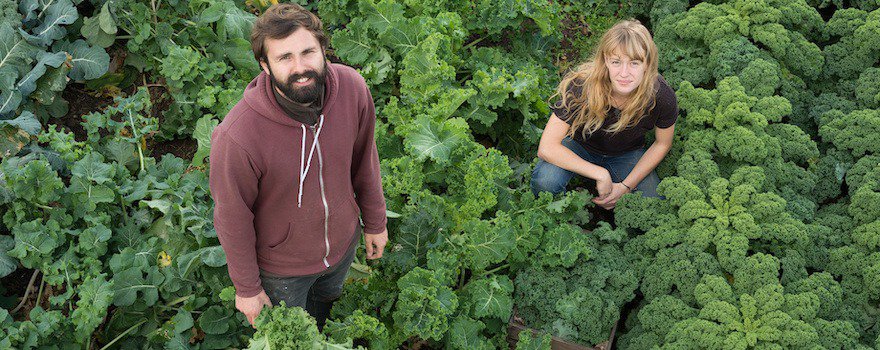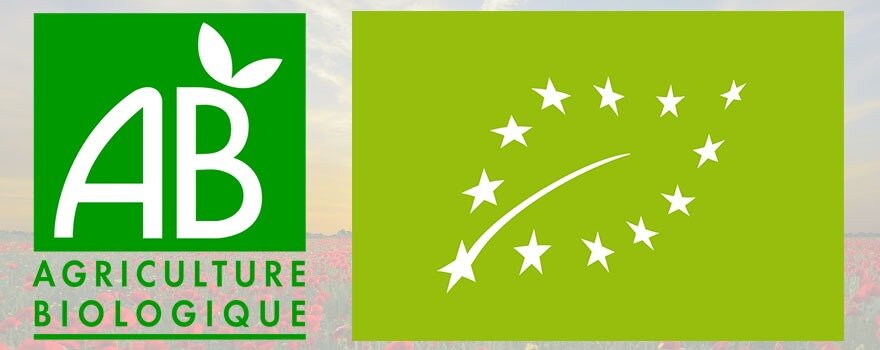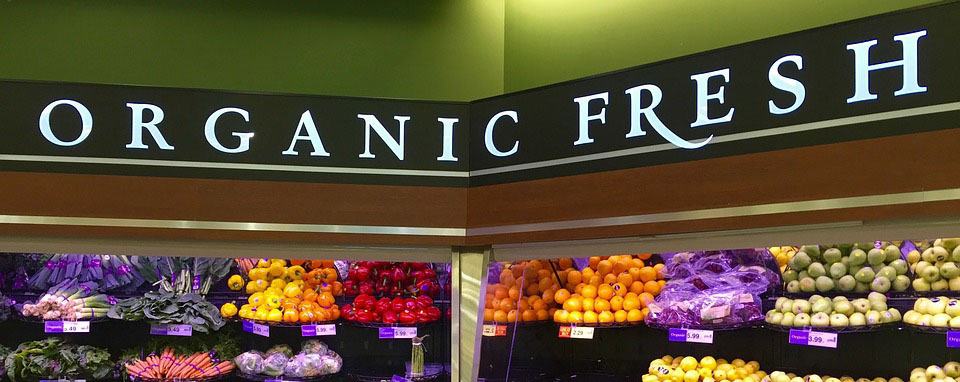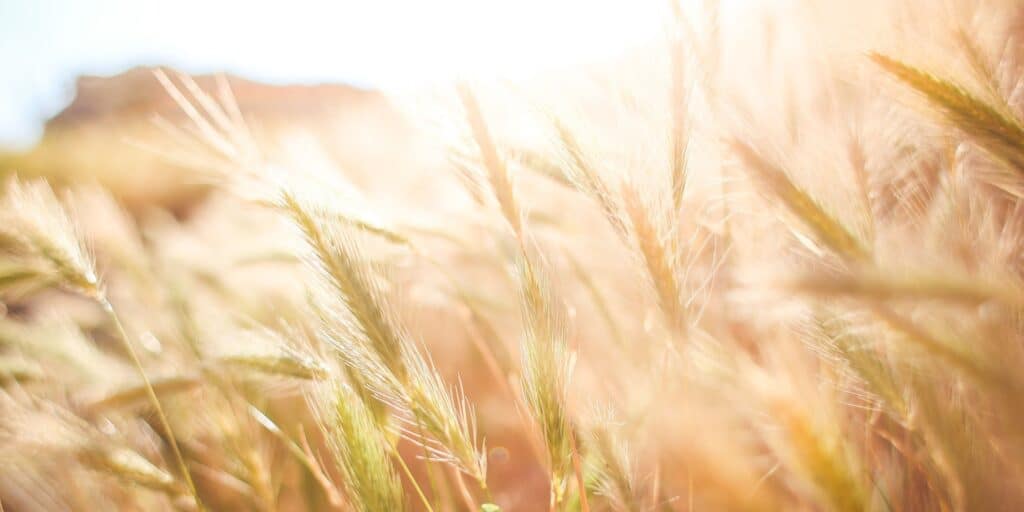A short history of organic farming
What is organic farming?

Organic farming constitutes a method of production that rejects GMOs as well as the use of synthetic products resulting from a chemical transformation.
Organic farming respects the balance of nature in its cultivation and livestock practices.
Compared to “reasoned” or “integrated” farming, organic production must comply with a strict set of specifications regarding the use of synthetic chemical products, livestock conditions, processing conditions, and animal health practices.
Another distinctive feature of organic farming is benefiting from the AB label, which guarantees the application of a set of specifications. It ensures an ethical mode of production that respects biodiversity, preserves natural resources, and limits the use of polluting products.
In summary, organic farming is:
- Une agriculture éthique et responsable
- Une utilisation contrôlée des produits chimiques
- Un label garantissant le respect d’un cahier des charges
The origins of organic farming
Over the past 60 years, the issue of organic agriculture has become a central concern of our societies. The arrival of organic products on our plates stems from a multitude of initiatives by doctors, farmers, and consumers.
It all begins in the 1920s. The Austrian philosopher Rudolf Steiner questioned modern agricultural methods. This marks the birth of the “biodynamic” movement.
Biodynamic farming is a cultivation method that respects the requirements of soil biology.
Beginning in the 1970s, the first private sets of specifications appeared defining the practices of organic farming.
In 1980, it was the turn of public authorities to recognize the existence of an “agriculture that does not use chemical products or synthetic pesticides”, and in 1985 this alternative agriculture was officially named “organic agriculture”.
This new designation then enabled the national development of specifications, the AB logo, and new labels.
Organic farming in France in 2019
The BIO Agency / Spirit Insight carried out in February 2019 a study on consumption and the perception of organic products in France:
- 1 français sur 2 achète des produits cosmétiques et d’hygiène biologiques
- 60% achètent des produits d’entretien ménager bio
- La génération Z (les jeunes nés après 1995) est plus attachée au bio pour des raisons éthiques, sociales et de bien être animal
- 6 français sur 10 ont peu confiance dans l’information fournie sur les produits biologiques
- En 2018 plus de la moitié des Français avait déclaré modifier ses comportements alimentaires et culinaires.
The study finally notes that environmental concerns play an important role in these changes in consumption.
Organic farming seems to be a good way to combine individual demands for improved well-being with the collective goal of protecting the planet.
Organic labels
Between 1980 and 2000 organic labels flourished in France and across Europe. There are nearly thirty organizations certifying organic products.

European organic label
Since 2010, this logo is mandatory on all organic products sold in Europe. It harmonizes production conditions and must be accompanied by the indication of the place of production of the agricultural raw materials used in the product.
The commitments of this label are:
- Pas de pesticide ni traitement chimique après les récoltes
- Une alimentation sans pesticide pour les élevages
- Une interdiction des OGM (même si des traces de contamination fortuites peuvent être admises)
- Peu de recours aux traitements vétérinaires et aux médicaments
- Un espace minimal et un accès au plein air pour les animaux
This label has been criticized because it allows producers to grow organic and non-organic crops on the same land.
AB label
Created in 1985, the AB label is aligned with the European organic label. There is therefore a ban on synthetic chemical pesticides and fertilizers and a tolerance for the use of products of natural origin under certain conditions.
Organic but not only…
Controversial products
The magazine 60 Million Consumers conducted a study on the composition of 130 organic products such as fruits, yogurts, fruit juices, and meats and fish.
The results indicate the presence of carcinogenic substances classified as endocrine disruptors.
These results can be explained in particular by the fact that in organic farming, livestock living outdoors can come into contact with contaminated soils. As for fruits and vegetables, they may be grown near contaminated soils or sources of pollution, which calls into question the 100% organic nature of the product.
Finally, organic farming does not guarantee that products are 100% local and in season. Indeed, many products may be imported and have a fairly heavy carbon footprint, particularly for exotic products.
Incomplete labeling

“Organic is, first and foremost, an obligation of means, not of results”.
This is what Stéphanie Pageot, president of the National Federation of Organic Agriculture, reminds us about the European label.
This means that it does not guarantee that a product is free of pesticides but rather that the producer is in the process of implementing the conditions necessary to grow without GMOs, pesticides, or chemical fertilizers. Many organic producers no longer identify with the requirements of this label today.
Greenpeace, for example, considers the AB and EU organic labels too tolerant toward GMOs. In response, other labels such as “Bio Cohérence”, “Bio Partenaires” and “Nature & Progrés” have emerged.
They seek to ban the mixing of conventional and organic production on certain farms.
The specifications of Bio Cohérence require that organic products be grown, produced, and processed on French soil. There is also very strict control of animal welfare.
Bio Partenaire, for its part, adopts the principles of the AB and European organic labels, enriching them with fair trade values and ensuring a fairer income for its producers. Its objective is to promote the sustainability of actors in the organic sector and to support local production.



